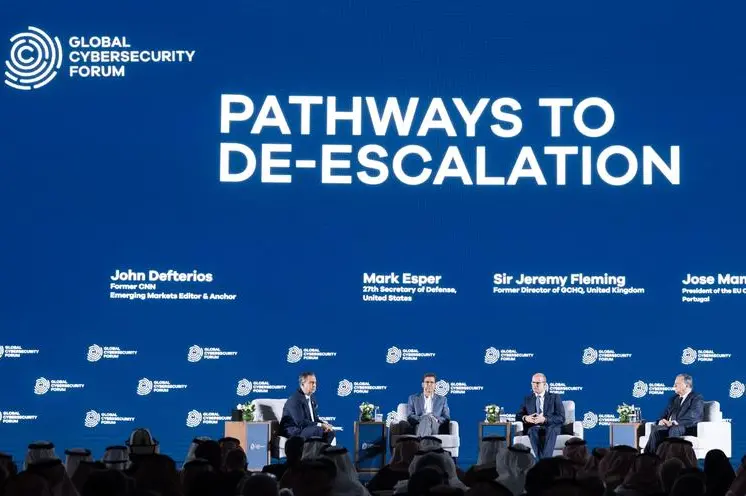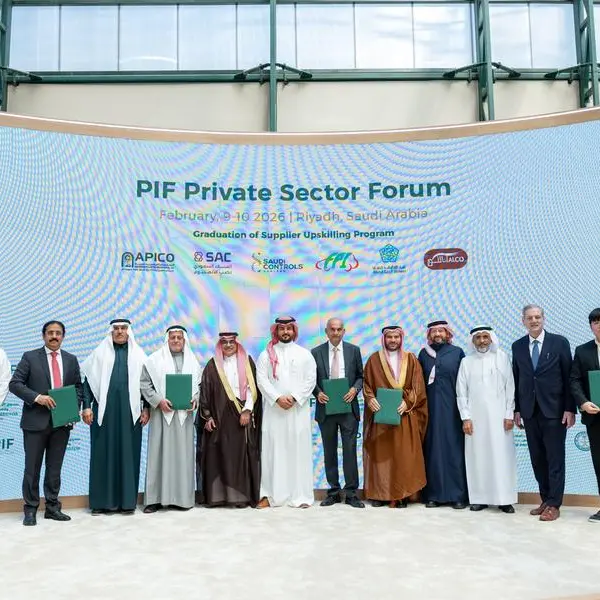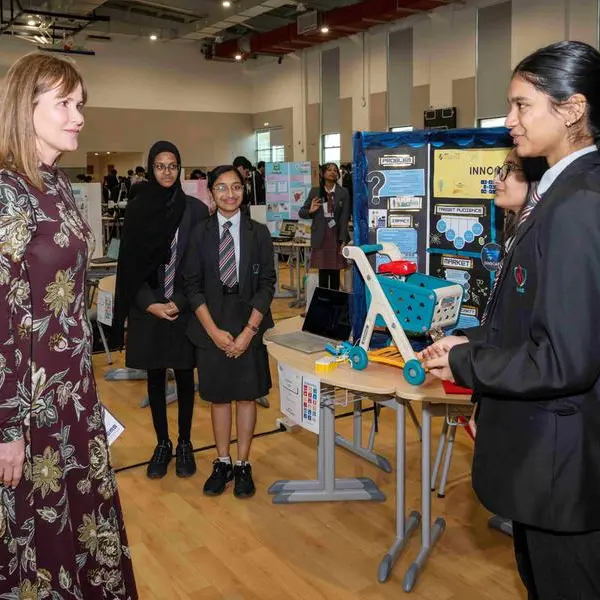PHOTO
- Leaders from government, business, NGOs and academia called for global collaboration around safety, security and inclusion in Cyberspace
Riyadh: The global community must deepen collaboration around shared opportunities in Cyberspace to empower and protect people worldwide. Policymakers and experts at the Global Cybersecurity Forum (GCF) Annual Meeting, held in Riyadh, emphasized the need for educational systems to focus more on cybersecurity and for the cyber workforce to become more inclusive, addressing a global talent gap of 2.8 million cyber professionals.
“Cyberspace is closely linked to the growth of economies, the prosperity of societies, the security of individuals and the stability of nations,” His Royal Highness Prince Mohammed bin Salman bin Abdulaziz, Crown Prince and Prime Minister of Saudi Arabia, said in a statement welcoming participants to the 4th edition of the GCF Annual Meeting.
The meeting, which took place from October 2-3, prioritized ensuring Cyberspace is safe for all, particularly vulnerable groups, such as children, and building resilience against rising threats.
“We have to work among likeminded nations – countries who agree with things like protecting children, protecting our economic prosperity and growth, protecting our national security,” said former U.S. Secretary of Defense Dr. Mark Esper, who spoke during the opening plenary on the first day of the event.
GCF focuses on the geostrategic, economic, social and behavioral dimensions of cybersecurity, and works to catalyze collective action to ensure that Cyberspace continues to be an enabler of prosperity and wellbeing for communities and people globally.
“The workforce is not nearly inclusive enough and society and our education systems are not putting enough focus on cybersecurity. There are plenty of opportunities through the lens of resilience for nations and communities to work together,” said Sir Jeremy Fleming, former Director of the UK’s GCHQ, who spoke alongside Esper at the opening plenary.
Over 70 high-profile speakers, including leaders from government, the private sector, and academia, gathered for two days of dialogue. Despite challenges posed by a rapidly evolving Cyberspace, the atmosphere was optimistic, with a shared belief in the power of multistakeholder collaboration to maximize Cyberspace opportunities.
José Manuel Barroso, former president of the European Commission and former prime minister of Portugal, during the opening plenary called for the global community to collaborate on public goods that benefit all societies.
“I don't see any reason why governments, in spite of geopolitical interests and differences, should not consider child protection a global public good,” Barroso said. “Competition is unavoidable between states. Cooperation is indispensable.”
H.E. Adel Al-Jubeir, Saudi Arabia’s Minister of State for Foreign Affairs and Envoy for Climate Affairs, speaking at the day two opening plenary, said the two global initiatives instated by the Crown Prince – the Child Protection in Cyberspace (CPC) initiative and the Women Empowerment in Cybersecurity (WEC) initiative have universal resonance and serve as important catalysts for international collaboration.
“There are areas that can be used to build confidence, and that confidence helps us to work better with each other," Al-Jubeir said.
This year’s event was complemented by another platform for collective action: the Child Protection in Cyberspace Global Summit, held in conjunction with the GCF Annual Meeting and in collaboration with the International Telecommunication Union (ITU), the United Nations Children’s Fund (UNICEF), the DQ Institute, and WeProtect Global Alliance. The Summit brought together key stakeholders from around the world to identify pathways for collaboration and collective action towards safeguarding children in Cyberspace.
Established as an independent, non-profit organization in 2023, GCF announced numerous projects and partnerships at this year’s Annual Meeting.
“A range of new projects will be launched under GCF’s umbrella, addressing some of the key issues and opportunities in Cyberspace, from cyber economics, to closing the cybersecurity workforce and skills gap, and ensuring that Cyberspace is safe and secure for children,” said H.E. Majed bin Mohammed Al-Mazyed, Governor of Saudi Arabia’s National Cybersecurity Authority, speaking on behalf of the GCF Board of Trustees.
Announcements included:
- The publication of the “2024 Global Cybersecurity Workforce Report” in partnership with Boston Consulting Group (BCG), which found that the current global workforce of cybersecurity professionals is short of 2.8 million qualified workers to meet current needs, and that only 24% of the current cybersecurity workforce is female.
- The launch of GCF’s “Center for Cyber Economics (CCE)”, in collaboration with the World Economic Forum (WEF) to enhance knowledge on the economic dimensions of cybersecurity.
- A global program with UNICEF to create a safer Cyberspace for children in 30 countries, aligned with the CPC initiative.
- The development of a “CPC Index” with the DQ Institute, aimed at improving child protection strategies by collecting data from over 100 countries.
- The GCF Cyber Leadership Launchpad to bridge the talent gap by facilitating mentorship for women leaders in cybersecurity.
- The activation of GCF’s Operational Technology Cybersecurity Center of Excellence (OTC CoE), founded by Aramco, will advance knowledge sharing and informed decision making, bringing together key players within the OT cybersecurity value chain as it drives research and development, standardization, and regulations.




















